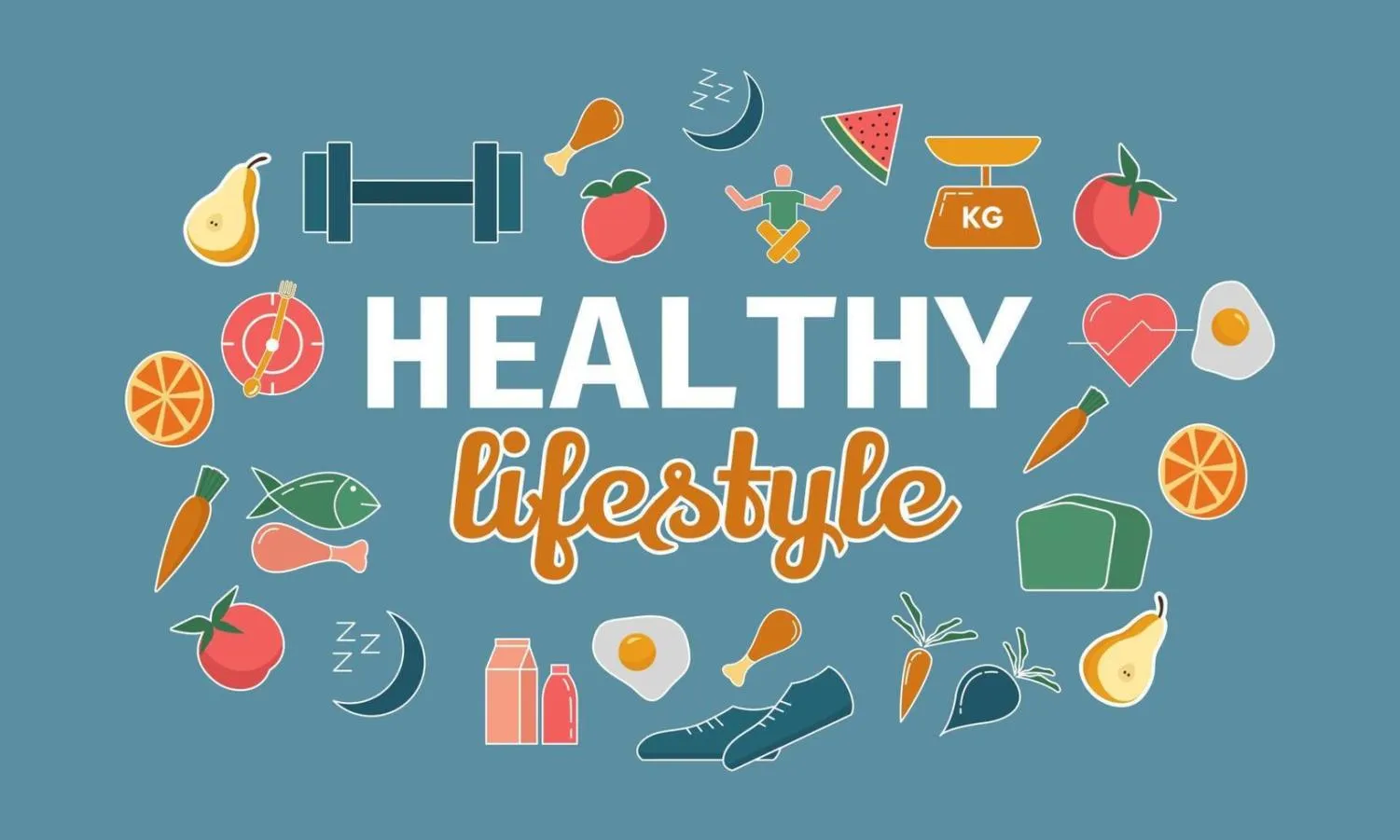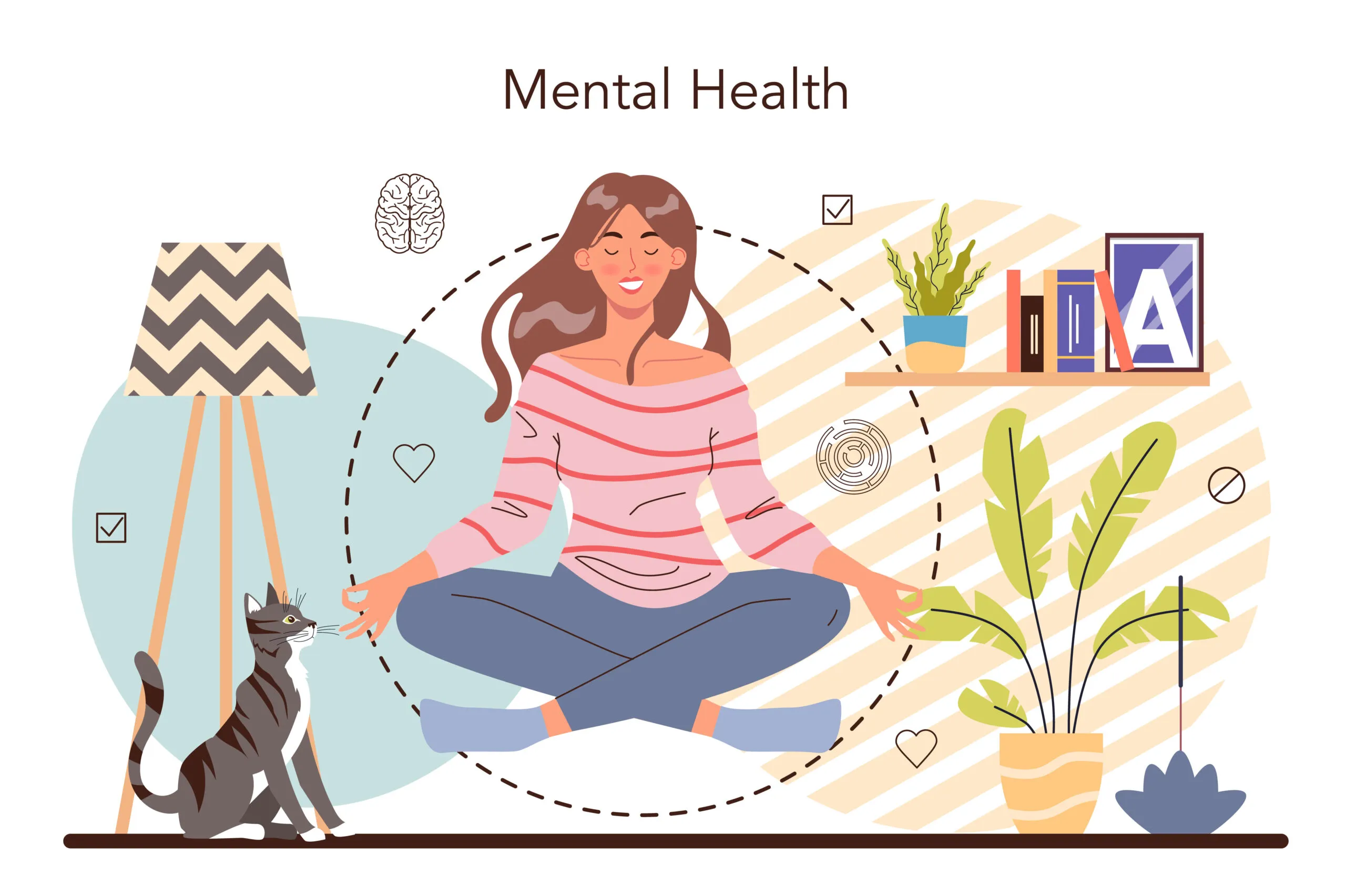In today’s fast-paced world, it can be easy to get caught up in the hustle and bustle, often neglecting our health in favor of convenience. However, staying healthy doesn’t always require expensive gym memberships, supplements, or drastic diets. There are many natural, simple, and sustainable ways to maintain and improve your health. In this article, we explore practical ways to stay healthy naturally, focusing on everyday habits that can lead to lasting health benefits.
1. Prioritize a Balanced Diet
A healthy diet is the foundation of overall well-being. The food we consume directly impacts our energy levels, immune function, and mental health. A balanced diet rich in whole, unprocessed foods provides the body with the nutrients it needs to function at its best.
How to Create a Balanced Diet:
- Eat a Variety of Whole Foods: Incorporate fruits, vegetables, whole grains, lean proteins (such as beans, fish, and chicken), and healthy fats (like nuts, seeds, and olive oil) into your meals.
- Limit Processed Foods: Reduce intake of sugary snacks, fast food, and processed meats that are often high in unhealthy fats, sodium, and added sugars.
- Hydrate: Drink plenty of water throughout the day to stay hydrated. Herbal teas can also be a great alternative for hydration.
Benefits of a Balanced Diet:
- Improved Immune Function: Nutrient-rich foods boost the immune system, helping to prevent illness.
- Increased Energy: A healthy diet stabilizes blood sugar levels, providing consistent energy throughout the day.
- Better Digestion: A diet rich in fiber supports gut health and proper digestion.
2. Exercise Regularly
Physical activity is essential for maintaining overall health and well-being. Regular exercise helps to improve cardiovascular health, increase muscle strength, and boost mental health by releasing endorphins, the body’s natural “feel-good” hormones.
How to Incorporate Exercise:
- Find an Activity You Enjoy: Whether it’s walking, running, cycling, swimming, or practicing yoga, engaging in activities that you enjoy makes it easier to stay consistent.
- Aim for 30 Minutes a Day: The general recommendation is at least 150 minutes of moderate exercise per week, which translates to about 30 minutes a day, five times a week.
- Mix Cardio and Strength Training: A balanced fitness routine should include both cardiovascular exercises (like jogging or dancing) and strength training (like weightlifting or bodyweight exercises).
Benefits of Regular Exercise:
- Improved Heart Health: Exercise strengthens the heart and reduces the risk of cardiovascular diseases.
- Increased Strength and Flexibility: Regular movement helps build muscle and maintain joint health.
- Mental Clarity and Stress Relief: Physical activity reduces stress, improves mood, and promotes mental clarity.
3. Get Enough Sleep
Sleep is one of the most important yet often overlooked aspects of health. Proper rest is essential for physical and mental recovery, immune function, and cognitive performance. Unfortunately, many people don’t prioritize sleep due to busy schedules, but making it a priority can lead to significant health improvements.
How to Improve Sleep Quality:
- Create a Sleep Schedule: Go to bed and wake up at the same time every day, even on weekends, to regulate your body’s internal clock.
- Create a Relaxing Bedtime Routine: Engage in calming activities such as reading, stretching, or meditating to prepare your body and mind for sleep.
- Limit Screen Time Before Bed: Avoid electronics at least 30 minutes before bedtime, as the blue light emitted by phones and computers can interfere with your sleep cycle.
Benefits of Proper Sleep:
- Enhanced Cognitive Function: Good sleep improves memory, focus, and learning ability.
- Better Mood and Mental Health: Adequate rest helps regulate emotions and reduces the risk of anxiety and depression.
- Strengthened Immune System: Sleep supports immune function and helps the body repair and regenerate.
4. Manage Stress Effectively
Chronic stress is a major contributor to many health problems, including heart disease, high blood pressure, and mental health disorders. Managing stress is crucial for maintaining overall health. Fortunately, there are many natural ways to reduce stress and promote relaxation.
Natural Ways to Manage Stress:
- Practice Mindfulness and Meditation: Taking a few minutes each day to meditate or practice deep breathing exercises can help calm the mind and reduce stress.
- Spend Time in Nature: Studies have shown that spending time outdoors in natural environments can significantly lower stress levels and improve mental health.
- Engage in Hobbies: Pursuing activities you enjoy, whether it’s gardening, painting, or cooking, helps to shift focus away from stressors and brings relaxation.
Benefits of Stress Management:
- Improved Mental Health: Reducing stress improves mood and mental well-being.
- Better Physical Health: Lower stress levels reduce the risk of heart disease, digestive issues, and other stress-related conditions.
- Increased Resilience: Managing stress builds emotional resilience, allowing you to handle challenges more effectively.
5. Stay Hydrated
Water is essential for every cell, tissue, and organ in the body. Staying hydrated supports digestion, nutrient absorption, temperature regulation, and detoxification. Dehydration can lead to fatigue, headaches, and poor physical performance.
How to Stay Hydrated:
- Drink Water Regularly: Aim for about eight 8-ounce glasses of water per day, though individual needs may vary based on activity level, climate, and body size.
- Incorporate Water-Rich Foods: Eat hydrating foods such as cucumbers, watermelon, oranges, and strawberries, which contain high water content.
- Drink Herbal Teas: Herbal teas such as chamomile or peppermint can also contribute to your hydration needs while providing additional health benefits.
Benefits of Staying Hydrated:
- Supports Digestion: Adequate hydration helps the body break down food and absorb nutrients more efficiently.
- Enhances Energy: Staying hydrated boosts energy levels and reduces feelings of fatigue.
- Promotes Healthy Skin: Water helps maintain skin elasticity and hydration, keeping it smooth and healthy.
6. Connect with Loved Ones
Maintaining strong social connections is an often-overlooked but crucial aspect of health. Positive relationships and social support help reduce stress, improve mental health, and provide a sense of purpose.
How to Strengthen Relationships:
- Spend Time with Family and Friends: Make time for socializing with loved ones, whether it’s a regular dinner, a weekend outing, or just a quick phone call.
- Engage in Meaningful Conversations: Instead of small talk, try to engage in deeper, more meaningful conversations that strengthen emotional bonds.
- Volunteer or Join a Community Group: Engaging in activities that promote social interaction, such as volunteering or joining a hobby group, can increase your sense of connection.
Benefits of Social Connections:
- Reduced Stress and Anxiety: Positive relationships provide emotional support, helping to reduce the impact of stress.
- Improved Mental Health: Strong social ties are linked to a lower risk of depression and better overall mental well-being.
- Increased Longevity: Studies have shown that those with strong social networks tend to live longer and healthier lives.
7. Practice Gratitude
Practicing gratitude is a powerful tool for improving mental and emotional health. Focusing on the positive aspects of life, rather than dwelling on negativity, can shift your mindset and improve overall well-being.
How to Practice Gratitude:
- Keep a Gratitude Journal: Each day, write down at least three things you are grateful for. This simple practice helps cultivate a positive outlook.
- Express Gratitude to Others: Take the time to thank others for their kindness, whether through a note, a text, or a face-to-face conversation.
- Reflect on Positive Moments: When you face challenges, remind yourself of past positive experiences to foster a sense of gratitude.
Benefits of Gratitude:
- Improved Mental Health: Gratitude reduces symptoms of anxiety, depression, and stress, promoting a sense of well-being.
- Enhanced Relationships: Expressing gratitude strengthens connections with others and fosters a sense of closeness.
- Increased Happiness: Focusing on what you are grateful for increases overall life satisfaction and happiness.
8. Avoid Harmful Habits
While incorporating healthy habits into your life is important, it is equally crucial to avoid harmful behaviors that can negatively affect your health. These habits include smoking, excessive alcohol consumption, and the overuse of technology.
How to Avoid Harmful Habits:
- Quit Smoking: If you smoke, seek support to quit. Smoking is linked to a wide range of health issues, including lung disease and heart disease.
- Limit Alcohol Consumption: If you drink alcohol, do so in moderation. Excessive drinking can lead to liver damage, high blood pressure, and other health complications.
- Reduce Screen Time: Spending too much time in front of screens can negatively affect sleep quality, posture, and mental health. Limit screen time and take regular breaks.
Benefits of Avoiding Harmful Habits:
- Better Physical Health: Avoiding harmful habits reduces the risk of chronic diseases and improves overall health.
- Improved Mental Clarity: Reducing alcohol consumption and screen time can lead to better cognitive function and mental clarity.
- Increased Longevity: Eliminating harmful habits can contribute to a longer, healthier life.
Conclusion
Staying healthy naturally doesn’t require drastic changes or expensive interventions. By focusing on simple, everyday habits such as eating a balanced diet, staying active, getting enough sleep, managing stress, and building meaningful relationships, you can significantly improve your health and well-being. Small, consistent changes over time can lead to lasting results, allowing you to feel your best physically and mentally.
By making natural, holistic practices a part of your daily routine, you can enhance your quality of life, reduce the risk of chronic illness, and enjoy a longer, more vibrant life.




